
Karyotyping Test
About Karyotyping:
Karyotyping is a process that examines chromosomes in a sample of an individual, providing a genome-wide picture of the individual's chromosome. This process helps reveal changes in the chromosome number that are associated with aneuploid conditions, such as trisomy 21 (Down syndrome).
Karyotyping is a test that looks for and analyses chromosomes in blood or body fluids. Chromosomes, which contain genes, are found inside the nucleus of the cell. DNA is the building block of genes. The functions of the body are dictated by DNA. Genes also store information about an individual's physical characteristics such as height, eye, skin, and hair colour. In general, most people have 23 pairs of chromosomes (46 in total) – half from mother and half from father, 23 from each.
What is karyotyping used for?
It is used to know if there are any unusual changes in chromosomes. It can help understand:
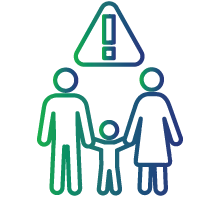
A genetic condition that runs in your family
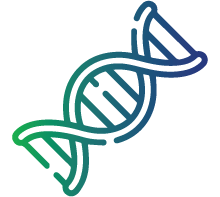
Certain symptoms that may be from a genetic disorder
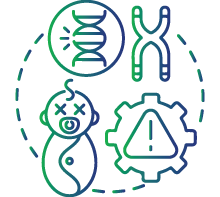
Chromosomal problems in the unborn baby

Male or female infertility
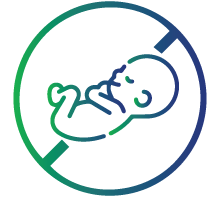
Miscarriages (more than two in a row before 20 weeks)
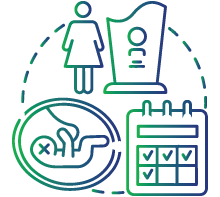
Stillbirths

Certain types of cancer and blood disorders and make appropriate treatment decisions
What are the different tests in karyotyping?
Karyotyping is done in several forms. They are:
Blood test
-
It is the most common way of performing karyotyping in adults, children and infants. A few millilitres of blood is taken and tested
Bone aspiration and biopsy
-
It involves testing of samples of bone marrow in individuals with certain types of cancer such as leukaemia and blood disorders
Amniocentesis
-
It involves testing of amniotic fluid, a protective fluid surrounding the developing foetus
Chorionic Villus Sampling (CVS)
-
It involves testing of samples of cells from placenta, an organ that connects your baby with your uterus
Tests are advised based on the reason for the test. If you want to test the chromosomes of an unborn baby, the samples might be gathered using amniocentesis or chorionic villus sampling. If you want to test the chromosomes of an adult, child or baby then a blood test, buccal cavity swab or bone marrow test is advised
Who should get tested?
You might need a karyotyping if:
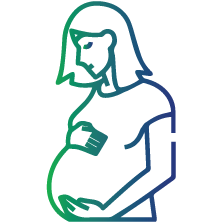
You are planning to have babies or get pregnant
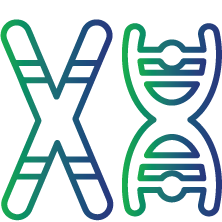
You have family history of genetic/chromosomal disorders
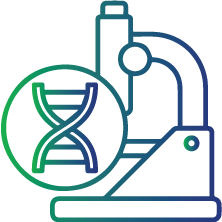
You have symptoms of genetic disorder

You are candidate to certain cancers and blood disorders such as leukaemia, lymphoma, myeloma etc
Preparation for test:
No special preparation is required before taking karyotyping
Interpretation of the results:
Abnormal or positive test results
Abnormal or positive test results indicate that either you have unusual structure or number of chromosomes (that is either one more or less of the normal 46 chromosomes in a cell). Abnormal results may mean different things about health that you or your child may have depending on the changes in the structure or number of chromosomes noticed. A healthcare provider will help you understand what exactly your results mean.
Negative test results
Negative results indicate you have normal number of chromosomes i.e., 46 number of chromosomes without any structural abnormalities in it
FAQs
Are there any potential risks from the Karyotyping test?
· You may experience a minor cramp during amniocentesis or CVS. Although both procedures are safe, there is a small chance of miscarriage. This affects about one in every 100 people. Before undergoing any procedure, consult with your healthcare provider about the risks and benefits of the procedure.
· There are no serious risks associated with bone marrow sampling, other than feeling a little sore or stiff at place from where the sample was taken.
A blood test and a biopsy will have no such significant risks
What is the Turn Around Time (TAT) for the results of karyotyping?
It may take few weeks to get the results of karyotyping. Although, sometimes it may take more or less time
I am 45 years old and pregnant. Should I undergo this test to see if my baby is at any risk?
Yes. Advanced maternal age is a risk factor for certain chromosomal disorders, such as Down syndrome, in children. With each pregnancy, a woman's chances of having a child with genetic conditions increase. The simple explanation to this is older eggs are more vulnerable to improper chromosome division
How accurate are the results from karyotyping?
Karyotyping test results are highly accurate with a success rate of 99.5% and accuracy of 99.8%. overall, it is 99.9% accurate with its results in describing genetic conditions of an individual
I am 6 weeks pregnant and we have a family history of genetic condition. When can I go for karyotyping for my unborn baby?
Amniocentesis and chorionic villus sampling are the two different types of tests recommended for sample testing in unborn babies. These are usually recommended during 10th to 14th weeks of early pregnancy (first trimester)

